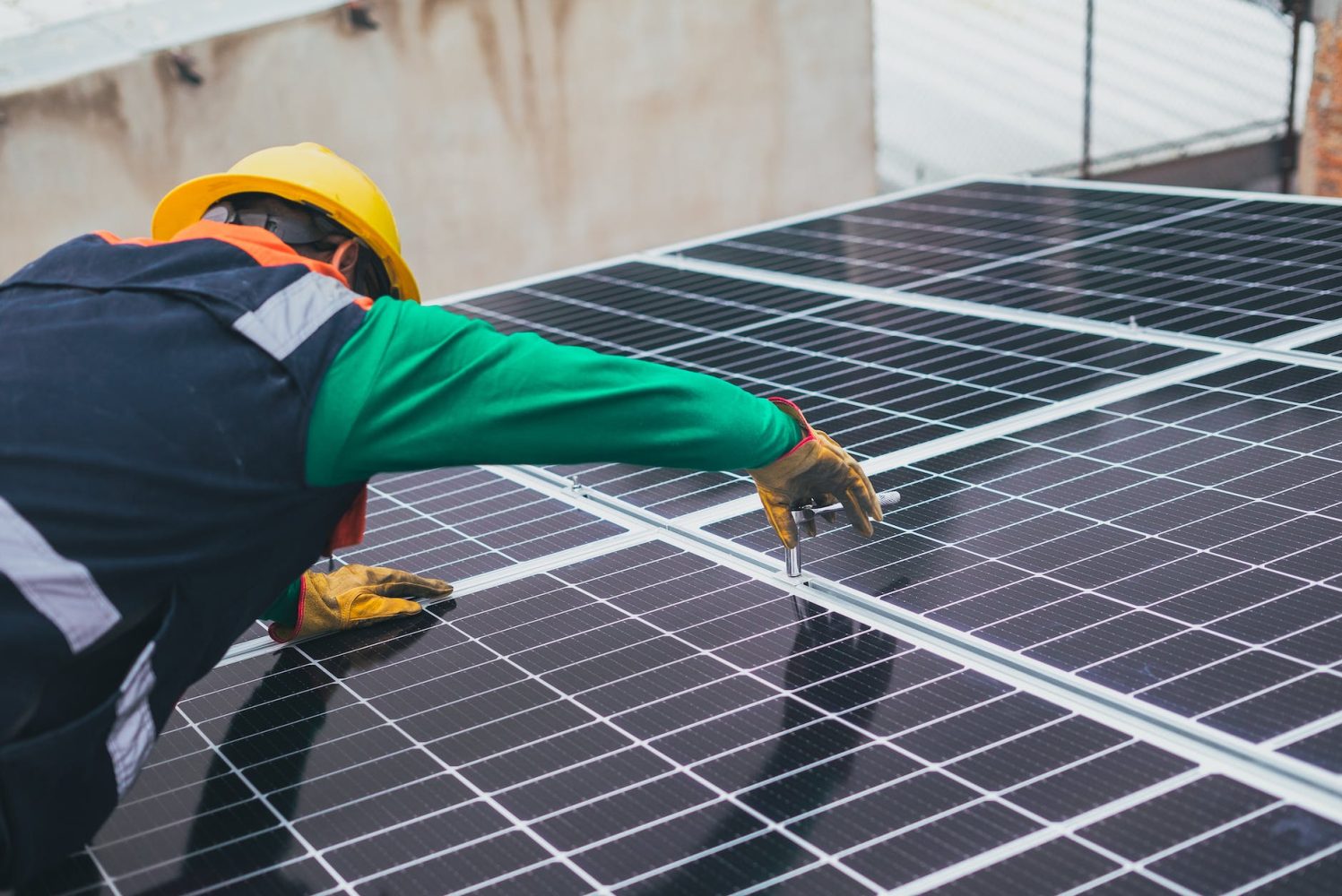
The US added a record-setting 32.4 gigawatts (GW) of solar capacity in 2023, according to a new report, but 2024 will bring challenges to the industry.
March 5, 2024: That’s a 37% increase from the previous record set in 2021 and a 51% increase from 2022.
It’s the first time in 80 years that a renewable electricity source has accounted for over half of annual capacity additions to the grid.
According to the US Solar Market Insight 2023 Year-in-Review released today by the Solar Energy Industries Association (SEIA) and Wood Mackenzie, solar accounts for 53% of all new electric generating capacity added to the grid last year. This marks the first time in 80 years that a renewable electricity source has accounted for over 50% of annual capacity additions.
Every solar market segment saw year-over-year growth in 2023, bringing total installed solar capacity in the US to 177 GW. The utility-scale sector alone added 22.5 GW of new capacity, while nearly 800,000 Americans added solar to their homes.
SEIA president and CEO Abigail Ross Hopper said:
The Inflation Reduction Act is supercharging solar deployment and having a material impact on our economy, helping America’s solar module manufacturing base grow 89% in 2023.
We must protect and optimize the policies that are driving these investments and creating jobs, and the stakes in the upcoming election couldn’t be higher.
December 6, 2023: The SEIA and Wood Mackenzie released their report, “US Solar Market Insight Q4 2023,” in which they report that third-quarter (Q3) additions of new solar totaled 6.5 gigawatts (GW) – a 35% year-over-year increase – as federal clean energy policies begin to take hold.
California and Texas led the US for new solar installations in Q3, and Indiana ranked third with 663 megawatts (MW) of new capacity as several large utility-scale projects came online. Fourteen states and Puerto Rico installed more than 100 MW of new solar capacity in Q3.
While economic challenges are beginning to impact the solar and storage industry, solar is still expected to be the largest source of generating capacity on the US grid by 2050.
SEIA president and CEO Abigail Ross Hopper said:
Solar remains the fastest-growing energy source in the United States, and despite a difficult economic environment, this growth is expected to continue for years to come.
To maintain this forecasted growth, we must modernize regulations and reduce bureaucratic roadblocks to make it easier for clean energy companies to invest capital and create jobs.
The residential solar segment installed a record 210,000 systems in Q3. However, the California Public Utilities Commission’s disastrous decision to gut the state’s rooftop solar incentives –resulting in an 80% drop in installations – and elevated US interest rates are expected to lead to a brief decline next year before growth resumes in 2025.
Elevated financing costs, transformer shortages, and interconnection bottlenecks are also impacting the utility-scale segment, which saw its lowest level of new contracts signed in a quarter since 2018.
However, improvements in the module supply chain have led to a record 12 GW of utility-scale deployment in the first nine months of 2023.
Solar accounts for 48% of all new electric generating capacity in the first three quarters of 2023, bringing total installed solar capacity in the US to 161 GW across 4.7 million installations. By 2028, US solar capacity is expected to reach 377 GW – enough to power more than 65 million homes.
Michelle Davis, head of solar research at Wood Mackenzie and lead author of the report, said:
The US solar industry is on a strong growth trajectory, with expectations of 55% growth this year and 10% growth in 2024.
Growth is expected to be slower starting in 2026 as various challenges like interconnection constraints become more acute. It’s critical that the industry continue to innovate to maximize the value that solar brings to an increasingly complex grid.
Interconnection reform, regulatory modernization, and increasing storage attachment rates will be key tools.
Electrek’s Take
Solar breaking capacity records in 2023 doesn’t surprise me – thank you, Inflation Reduction Act – but it certainly makes me happy to hear it from the SEIA. The solar industry is still going to grow in 2024, just not as quickly as it did last year.
There are a lot of moving parts in this revolutionary transition to clean energy, and next year, the industry and its supply chain is going to have to recalibrate on some important stuff.
There’s nothing it can do about the interest rates, and I don’t know how California is going to sort out its mess. But there are innovative startups coming up with better ways to calibrate the power on the grid, and those ideas are being launched commercially. As Davis says, interconnection reform and regulation improvements are needed to help ease the clean energy bottlenecks. Hopefully those bottleneck issues will be improved by government sooner rather than later.
Read more: Here’s what the US needs to do right now to upgrade the grid
Photo: A worker watches the sunrise by US Department of Energy is licensed under CC-CC0 1.0
To limit power outages and make your home more resilient, consider going solar with a battery storage system. In order to find a trusted, reliable solar installer near you that offers competitive pricing, check out EnergySage, a free service that makes it easy for you to go solar. They have hundreds of pre-vetted solar installers competing for your business, ensuring you get high quality solutions and save 20-30% compared to going it alone. Plus, it’s free to use and you won’t get sales calls until you select an installer and you share your phone number with them.
Your personalized solar quotes are easy to compare online and you’ll get access to unbiased Energy Advisers to help you every step of the way. Get started here. – ad*
